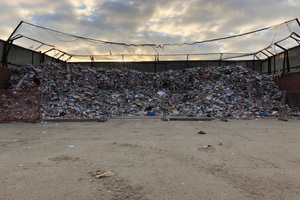- The UK becomes the first country outside the US to join the COVID-19 High-Performance Computing consortium set up in response to the pandemic
- the consortium will allow UK researchers to bid for access to some of the world’s fastest supercomputers
- UK commits to working with G7 nations to tackle coronavirus, including sharing research and identifying novel solutions
The UK will be the first country, outside the US, to join the global COVID-19 High Performance Computing (HPC) consortium, Science Minister Amanda Solloway announced today (Thursday 28 May).
The consortium, launched by the US in response to the global pandemic, will allow the UK’s world-leading researchers and scientists to gain access to the world’s largest and fastest supercomputers and perform complex calculations quickly. This will rapidly accelerate UK coronavirus research, helping further treatments, knowledge and understanding of how the disease behaves through advanced modelling.
Bringing together government, industry, and academic leaders, the consortium has 40 members including IBM, US Department of Energy, Google and NASA. It has already supported 59 research projects, all running on high performance computing machines – including London based AI start up, Kuano, which is using the facilities to gain insights from diseases similar to COVID-19, such as SARs, to help design a new drug to defeat the virus.
The announcement was made during the G7 Science and Technology Ministerial held today, with the UK represented by Minister Solloway and John Whittingdale, Minister for Media and Data.
During the virtual meeting of science and technology ministers, the G7 nations set out a shared vision on tackling the pandemic. As a result, the UK committed to enhancing cooperation on shared COVID-19 research priority areas and launching a global partnership on artificial intelligence.
UK Science Minister, Amanda Solloway said:
Tackling coronavirus requires a joint and strong international effort and the very best minds in science and technology sharing their research and knowledge.
By joining this consortium, our leading researchers will be able to access some of the most advanced computers in the world to speed up their research, gain access to new developments, and share the UK’s world-class computing technologies to find a solution to this virus.
UK Data Minister, John Whittingdale said:
The UK has a longstanding reputation for innovation so it is fantastic to see our researchers and scientists working with the world’s fastest supercomputers to accelerate the treatment, research and understanding of the coronavirus.
We are determined to use the power of data and emerging technologies to improve people’s lives and the UK will make a vital contribution to the consortium.
The UK’s access to the High-Performance Computing consortium will be led by UK Research and Innovation (UKRI). The consortium will also ensure that the UK’s other high performing computing facilities are contributing to the global effort against COVID-19, with the Met Office and UK Atomic Energy Authority providing capabilities.
Notes to editors
Visit the High-Performance Computing (HPC) consortium website to see its full membership.


